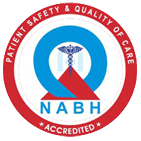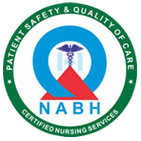FOLLOW THE MISSION HOSPITAL




Human immunodeficiency virus (HIV) is the virus, or germ, that causes acquired immune deficiency syndrome (AIDS). The virus weakens a person's ability to fight infections and cancer. People with HIV are said to have AIDS when the virus makes them very sick and they develop certain infections or cancers.
Having HIV does not always mean you have AIDS. It can take many years for people with the virus to develop AIDS. HIV and AIDS cannot be cured. Although people with AIDS will one day die from an AIDS-related illness, there are ways to help people stay healthy longer.
A person gets HIV when an infected person's body fluids (blood, semen, fluids from the vagina, or breast milk) enter his or her bloodstream. The virus can enter the blood through linings in the mouth, anus, or sex organs (the penis and vagina), or through broken skin.
Both men and women can spread HIV. A person with HIV can feel okay and still give the virus to others. Pregnant women with HIV can also give the virus to their babies.
Common ways people get HIV:
You cannot get HIV from:
Anyone can get HIV if they engage in certain activities. You might have a higher risk of getting HIV if you:
Yes. Biologically speaking a woman is more vulnerable to heterosexual transmission of the disease because the genitalia are easily exposed to seminal fluids. Gender inequality has great influence on the spread of HIV/AIDS among women. For example in some cultures, many women and girls are often put in situations where they engage in non-consensual sex or have sex for money. In the U.S. minority communities have been hit the hardest by HIV. African American and Hispanic women together represent less than 25% of all U.S. women, yet they account for more than 78% of AIDS cases reported among women in our country.
The only way to know if you have HIV is to take an HIV test. Multiple national guidelines recommend routine voluntary HIV screening of all patients aged 18 to 75 years of age as a normal part of medical care. The reason for these recommendations is that nearly one out of five people infected with HIV are not aware that they have the infection.
To do the HIV test, a small sample of blood is taken from your arm. The blood is sent to a lab and tested for HIV. Home testing is available. The sample can be obtained via oral secretions (saliva), or a blood sample from a finger-stick test strip that is then mailed to a laboratory for screening. Positive results must be confirmed by your doctor before a diagnosis of HIV infection can be established.
Some clinics perform HIV tests without ever taking your name (anonymous testing). You must go back to the clinic to get your results. A positive test means you have HIV. A negative test means no signs of HIV were found in your blood.
Before taking an HIV test:
Some people get flu-like symptoms a month or two after they have been infected. These symptoms often go away within a week to a month. A person can have HIV for many years before feeling ill. Signs that HIV is turning into AIDS include:
The best way to protect yourself is to avoid activities that put you at risk. There's no way to tell by looking at someone if he or she has HIV. Always protect yourself.
It's important to use a condom correctly to protect yourself against HIV. Follow these tips:

A Unit Of Durgapur Medical Centre Pvt. Ltd.